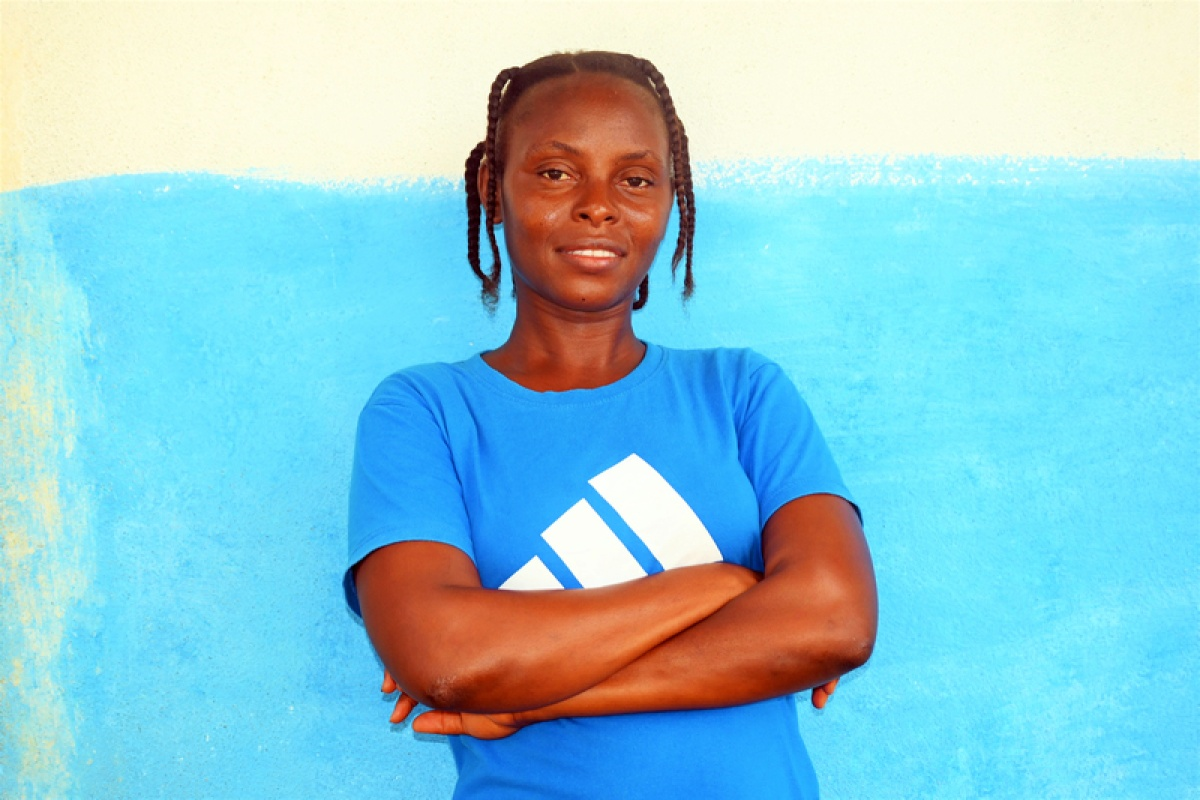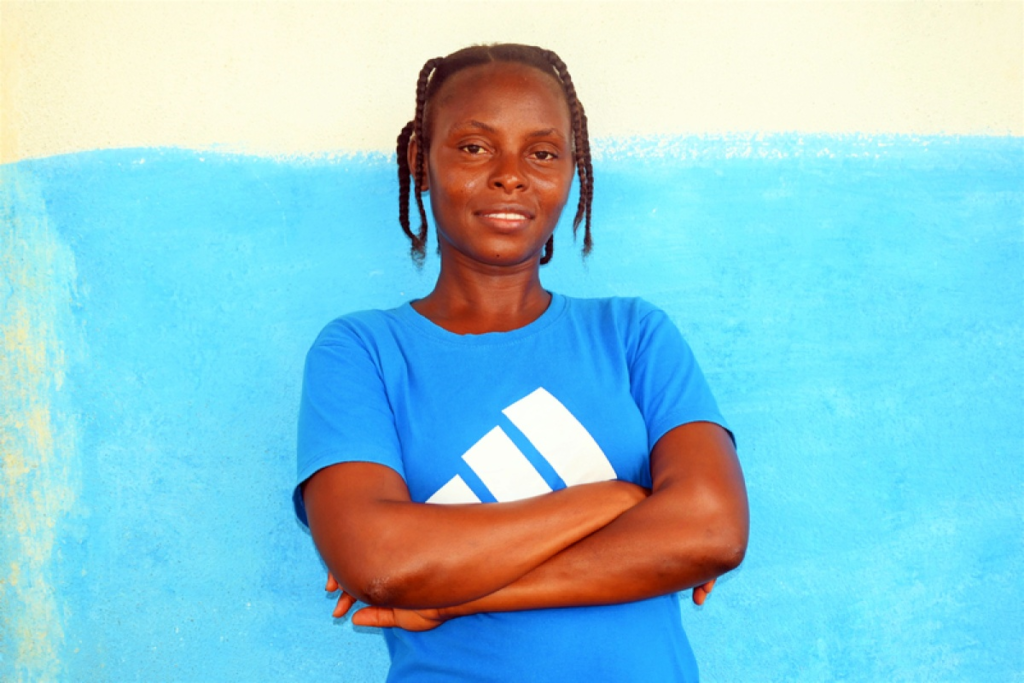Championing Diabetes Prevention and Care

Patient becomes advocate in diabetes management in rural Liberia
Posted on Nov 19, 2021

Tina Thomas was first diagnosed with type 1 diabetes at age 26 after months of feeling unwell. She had lost weight, was urinating frequently, drinking water, and sometimes eating excessively.
“My complexion changed and people kept saying I looked like someone who was pregnant,” Thomas said. “I got concerned because I didn’t know what was happening to me and I still wasn’t feeling well. People started asking me to go to church and all sorts of places for treatment but I decided to go to the hospital.”
The hospital Thomas visited was J.J. Dossen, supported by Partners In Health (PIH) Liberia, which began working in rural Maryland County during the 2014 Ebola outbreak and remained to help the Ministry of Health strengthen and build the health system. Hospital staff listened to her concerns and ordered a battery of lab tests to pinpoint a diagnosis.
“They did my HIV test, sugar level, malaria, and some other tests,” Thomas said. “Everything came back negative, except the sugar test. It was very high, so the doctor asked that I should be admitted and put on some fluids immediately.”
A diabetes diagnosis is relatively uncommon in Liberia—mostly because clinicians lack the training, lab tests, and medications to identify and treat the condition effectively. Prevalence among people ages 20 to 79 who have type 1 or type 2 diabetes stands at 2.4% in Liberia. Type 2 diabetes is the most common and accounts for about 90% of all diabetes worldwide. In sub-Saharan Africa, type 2 diabetes affects about 8% of people above the age of 25.
The number of patients living with type 1 diabetes is much lower. The chronic condition typically appears during childhood or adolescence, but it can develop in adults. There is no cure and, without access to insulin to control blood sugar levels and a proper diet, people with type 1 diabetes could face disabling or life-threatening complications.
Thomas stayed at J.J. Dossen Hospital for two weeks. While there, she met Diana Culbertson, former non-communicable disease (NCD) and malnutrition clinical lead at PIH Liberia, who was administering her medications, checking her sugar levels daily, and constantly encouraging her.
“For me to accept that I had diabetes was hard because, as a young person, I had not seen it in my family,” Thomas said. “I never heard about it in my family or that somebody had diabetes, so I was doubting it.”
In time, Thomas did accept her diagnosis. After being discharged, she visited the hospital twice daily for her insulin shots and other medications. The journey was taking a toll on her. Culbertson noticed and decided to train her and other patients to administer their insulin shots at home. Being the youngest among the patients, Thomas received extra training and was guided to support other diabetic patients.

Seeing a growing number of patients diagnosed with chronic conditions, such as diabetes, PIH opened a specialized outpatient clinic at J.J. Dossen Hospital in June 2017 to manage both severe and common NCDs, in partnership with the Ministry of Health’s NCD Division and the County Health Team. The NCD team treats type 1 and type 2 diabetes, chronic heart failure, chronic kidney disease, advanced hypertension, and other complex NCDs. Care for these conditions is often only available in Monrovia, the capital city, not in rural hospitals such as J.J. Dossen. The goal is to decentralize access and improve the quality of NCD care by sensitizing communities, training and mentoring primary care providers, procuring essential medicines and diagnostics, building fit-for-purpose spaces, developing referral and electronic medical record systems for patient tracking.
Liberia is among several PIH-supported countries working to integrate NCD care within the primary health system, using an expanded version of the World Health Organization’s Package of Essential Non-Communicable Diseases.
Currently, 228 type 2 diabetes patients and 37 type 1 diabetes patients are enrolled in the NCD program across Maryland County. PIH provides medical supplies and social support for all type 1 diabetes patients and some type 2 diabetes patients. PIH has also supported the Ministry of Health to develop national diabetes guidelines, while also building the capacity of health workers in diabetes management in Maryland County and around Liberia.
Today, Thomas is a PIH community health worker and a member of Maryland County’s patient advisory board, constituted in June 2021, to provide guidance on diabetes management in facilities across the county. She also assists the NCD clinic at J.J. Dossen Hospital and holds talks in communities to raise awareness for diabetes prevention and treatment, as well as other non-communicable diseases.
“Now I am well, I make sure I eat right and take my medicines,” she said. “I sometimes share my story with some of the people I engage in the communities and, because I look healthy, they believe me and follow the advice we give them.”
Originally published on pih.org



